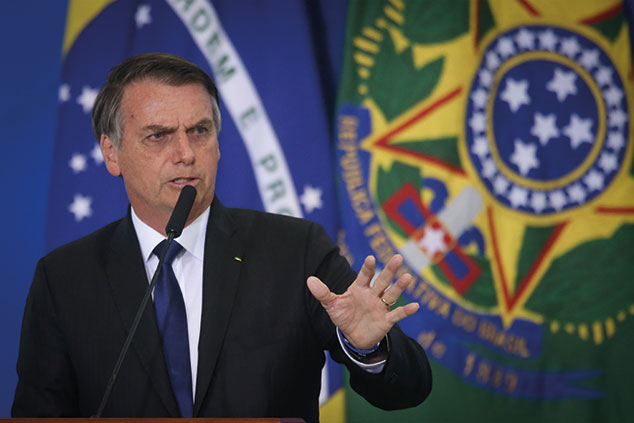
Brazil endured a severe recession in 2015 and 2016 and a tentative recovery has now gone into reverse, says Jeffrey Lewis for The Wall Street Journal. The economy contracted 0.2% in the first quarter, the first fall since 2016. A deadly dam accident in January weighed on the mining industry, which saw output fall a whopping 6.3% quarter-on-quarter.
Early signs suggest that the second quarter has also been “very weak”, writes William Jackson for Capital Economics. “There is now a real risk that the economy will slip into a technical recession”.
Crucial change
Tackling long overdue reforms would bolster confidence, but there has been scant progress on that front. Brazil’s unsustainable public-pensions system – many people retire in their fifties on as much as 70% of their final salary – is a key concern for investors. More than 40% of the federal budget is devoted to social security. Unchecked, the growing national debt will be equivalent to the size of the entire economy by 2023.
Bolsonaro wants to shore up the system with measures that could save one trillion Brazilian reais (£203bn) over a decade. Yet getting anything through “the political juggernaut of the Brazilian Congress is not for beginners”, says Esther Solano on theglobalamericans.org. “There are 513 deputies from 30 different parties”.
The trouble is that instead of playing the diplomat, the combative Bolsonaro has managed to offend key power brokers. Amid government infighting, “Bolsonaro’s political ineptitude has started to dominate the narrative”. Even the country’s conservative press is turning against him.
Investors have also rapidly become disillusioned with the new regime, notes David Biller on Bloomberg. A survey of money managers, economists and traders found that approval of the government fell to just 14% in May from 86% in January.
There is still much to like in Brazil for long-term investors: soft and hard commodities, a large population, and an expanding middle class. A cyclically adjusted price/earnings ratio (Cape) of 16, among the lowest in the world, suggests that much of the political turbulence has been priced in. The next few months, however, are unlikely to prove especially lucrative.